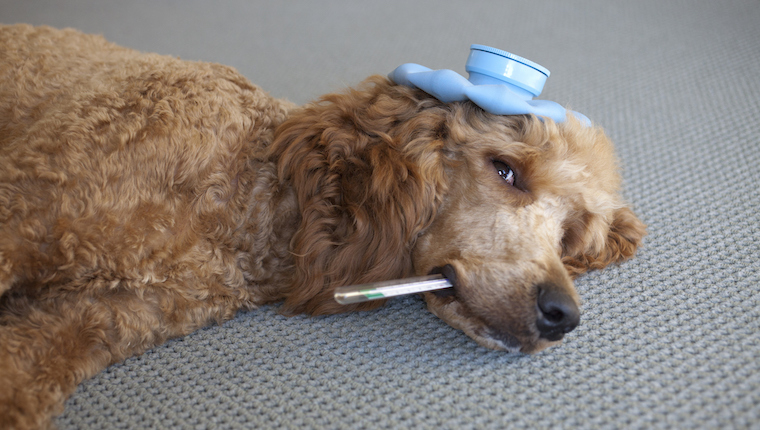In July, the World Health Organization (WHO) declared the monkeypox outbreak a global health emergency. Monkeypox is a zoonotic disease, meaning it can spread between animals and people. This has some pet parents concerned about their four-legged friends’ risk.
What Is Dogs’ Monkeypox Risk?
According to the Centers for Disease Control & Prevention (CDC), the chances of an infected person transmitting the virus to their pet, or visa versa, are slim. So far, there are no confirmed cases of infected dogs or cats in the U.S.
However, much is still unknown about disease transmission. Dogs and cats might be able to contract it via petting, kissing, hugging, cuddling, or sharing food or sleeping areas with an infected human. Experts are also uncertain whether other pets, like gerbils, hamsters, and guinea pigs, can contract the virus. Domestic adult rabbits, mice, and rats can “possibly” become infected, as can chinchillas and hedgehogs.
“We should assume any mammal can be infected with [monkeypox virus],” the CDC said.
How to Protect Your Pet If You Are Infected
If you or someone in your home is infected, the CDC advises you to avoid contact with pets, if possible.
If you haven’t had close contact with your pet since the onset of your symptoms, the agency suggests asking friends or family who live separately to watch your four-legged friend until you fully recover.
The agency also recommends:
- Covering skin rashes with long garments or gloves and wearing personal protective equipment, such as a face mask, when in proximity to people or animals.
- Practicing good hygiene, including washing your hands or using hand sanitizer before and after caring for a pet.
- Keeping potentially contaminated items, such as clothing, sheets, and towels, away from your pet and their toys, food, and bedding.
- Ensuring your pet does not come into contact with bodily fluids via an uncovered rash or used bandages.
The CDC says not to surrender, abandon or euthanize your pets because of potential exposure. The agency also warns against wiping or bathing your pet with chemical disinfectants, alcohol, hydrogen peroxide, or similar products such as industrial cleaners or hand sanitizer, as these substances can harm them.









